The Will to Power: The Philosophy of Friedrich Nietzsche By Kathleen Higgins & Robert Solomon
$5,00
The Will to Power: The Philosophy of Friedrich Nietzsche – Digital Download!
Let’s embark on a captivating adventure to uncover remarkable insights that spark your curiosity and elevate your understanding

The Will to Power: The Philosophy of Friedrich Nietzsche By Kathleen Higgins & Robert Solomon
Overview
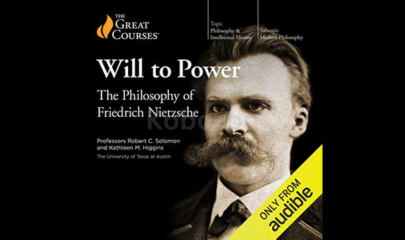
The Will to Power: The Philosophy of Friedrich Nietzsche
In the vast landscape of philosophical inquiry, Friedrich Nietzsche stands as one of the towering figures whose ideas have provoked thought and debate for over a century. “The Will to Power: The Philosophy of Friedrich Nietzsche,” a course presented by Kathleen Higgins and Robert Solomon, encapsulates the essence of Nietzsche’s thought through a dynamic exploration of his key philosophical concepts. Structured as a series of 24 lectures, this work seeks to illuminate Nietzsche’s complex ideas not only for scholars but for any seeker of wisdom. Through a thematic approach, rather than a purely chronological exposition, Higgins and Solomon guide their audience through the intricate web of Nietzsche’s arguments about life, morality, and existence. This review will delve into the strengths and limitations of the course, examining how effectively it captures Nietzsche’s philosophical spirit and engages listeners in deeper reflection.
A Thematic Exploration of Nietzschean Philosophy
Unpacking Misconceptions
One of the key strengths of Higgins and Solomon’s course is the careful dismantling of common misconceptions surrounding Nietzsche’s philosophy. Many associate him with nihilism and misogyny, but the instructors provide a nuanced perspective that reinterprets these claims. They argue that Nietzsche viewed the critique of traditional values, particularly those rooted in Christian morality, as a call for individual empowerment rather than as a descent into meaninglessness.
Nietzsche’s idea of the “will to power” emerges as a central theme, as he invites his audience to consider the dynamics of human motivation and ambition. In an age often plagued by existential doubt, Nietzsche’s assertion that life can be affirmed, despite its suffering, offers a beacon of hope. By emphasizing the need to confront and embrace life’s challenges, Higgins and Solomon present Nietzsche as a philosopher deeply invested in the affirmation of life, rather than a proponent of despair.
Thematic Connections and Clarity
The course’s structural choice to focus on themes allows for richer connections among Nietzsche’s diverse ideas. Topics such as perspectivism and eternal recurrence are woven together to create a more comprehensive understanding of his philosophical landscape. This thematic lens provides clarity to Nietzsche’s dense and often elusive concepts, making them more accessible to the audience.
For instance, by placing perspectivism, the concept that knowledge is always obtained from a particular perspective, alongside the notion of the will to power, the course underscores how various viewpoints influence our understanding of truth and reality. This interrelation among themes encourages listeners to engage in continuous reflection about the nature of knowledge and existence itself.
Critique of Presentation and Engagement
Despite numerous strengths, some critiques of the course revolve around its presentation style. Listeners have noted that the delivery might lack the engaging flair that could hold an audience’s attention more effectively. While Higgins and Solomon are undoubtedly respected scholars, the manner in which complex ideas are unpacked may lead some to lose focus. In a world where engagement is key to learning, the desire for a more captivating presentation format becomes evident.
Nonetheless, the educational value of the course remains significant. Although the presentation style is a concern for some, the content itself provides a solid foundation for any individual seeking a deeper understanding of Nietzsche. The course serves as an invitation to readers to delve into Nietzsche’s texts, fostering a desire for further exploration that is one of its most commendable qualities.
Addressing Controversial Aspects
Balancing Perspectives
One of the more contentious aspects of “The Will to Power” course is its handling of Nietzsche’s more controversial views. Critics have pointed out that the instructors may come off as overly charitable, particularly in relation to Nietzsche’s views on morality and power dynamics. The potential radical implications of Nietzschean thought can be glossed over, diminishing the opportunity for critical analysis of his philosophies’ impact on social and ethical frameworks.
For instance, his concept of the Übermensch often interpreted as a rejection of egalitarian values warrants a more detailed discussion. The portrayal of Nietzsche as a figure advocating for self-overcoming and personal strength can, at times, obscure the potential misinterpretations that have historically emerged from his ideas. A balanced presentation that acknowledges the darker connotations while still embracing Nietzsche’s affirmations of life could provide a more holistic perspective for listeners.
Engaging with Controversy
It is essential for any serious engagement with Nietzsche’s philosophy, especially for a contemporary audience, to confront the controversies head-on. By not thoroughly engaging with these aspects, there may be a missed opportunity to cultivate a more profound discourse. This is particularly relevant in our current climate, where navigating the problematic dimensions of philosophy is critical for a responsible understanding of its implications.
A more comprehensive treatment of Nietzsche’s views on morality could include insights from contemporary scholars who grapple with these questions. For example, the works of Maudemarie Clark on Nietzsche’s ethics or Paul Katsafanas on the will to power could serve as valuable frameworks for critical evaluation and discussion.
Conclusion
“The Will to Power: The Philosophy of Friedrich Nietzsche,” as delivered by Kathleen Higgins and Robert Solomon, offers a valuable and insightful introduction to Nietzsche’s complex thoughts. Despite its limitations, especially concerning the presentation of controversial topics, the course succeeds in illuminating key concepts and encouraging further exploration of Nietzsche’s texts. Engaging deeply with Nietzsche’s philosophical inquiry, this work inspires listeners to reflect on the nature of existence, power, and morality, urging them to confront the intricacies of their own lives. Ultimately, Higgins and Solomon foster a spirit of inquiry that resonates with Nietzsche’s legacy, encouraging both newcomers and seasoned philosophers alike to navigate the challenging terrain of his ideas.
Frequently Asked Questions:
Innovation in Business Models: We use a group purchase approach that enables users to split expenses and get discounted access to well-liked courses. Despite worries regarding distribution strategies from content creators, this strategy helps people with low incomes.
Legal Aspects to Take into Account: Our operations’ legality entails several intricate considerations. There are no explicit resale restrictions mentioned at the time of purchase, even though we do not have the course developers’ express consent to redistribute their content. This uncertainty gives us the chance to offer reasonably priced instructional materials.
Quality Control: We make certain that every course resource we buy is the exact same as what the authors themselves provide. It’s crucial to realize, nevertheless, that we are not authorized suppliers. Therefore, the following are not included in our offerings: – Live coaching sessions or calls with the course author.
– Entry to groups or portals that are only available to authors.
– Participation in closed forums.
– Straightforward email assistance from the writer or their group.
Our goal is to lower the barrier to education by providing these courses on our own, without the official channels’ premium services. We value your comprehension of our distinct methodology.
Be the first to review “The Will to Power: The Philosophy of Friedrich Nietzsche By Kathleen Higgins & Robert Solomon” Cancel reply
You must be logged in to post a review.
Related products
Personal Development
Training the Electric/Magnetic Lines of Force with Movement By Sixty Skills
Personal Development
Personal Development
Abundance And Money Workshop Replay By Samantha Chung & Gina Bourne
Personal Development
Personal Development
Online – The Demartini Values Training Program – USA 2020 (Videos Only) By Dr John Demartini
Personal Development
Cognomovement An Energy Healing System With Bill McKenna and Liz Larson – The Shift Network
Personal Development

 CFI Self-Study (All Courses) By CFI Education
CFI Self-Study (All Courses) By CFI Education  The Ultimate Guide to Rehabbing By William Bronchick
The Ultimate Guide to Rehabbing By William Bronchick  Trend-Rev Block And Ea Forex System - No Mt4 Indicator - By Ifxsuccess
Trend-Rev Block And Ea Forex System - No Mt4 Indicator - By Ifxsuccess  5 Dimensional Flow Course By Simon Borg-Olivier
5 Dimensional Flow Course By Simon Borg-Olivier 







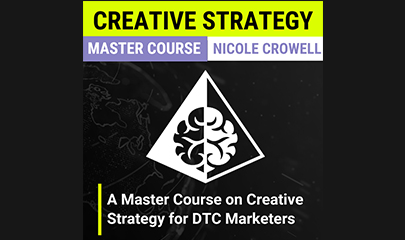



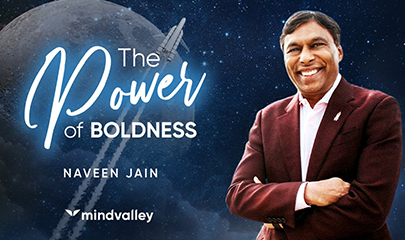



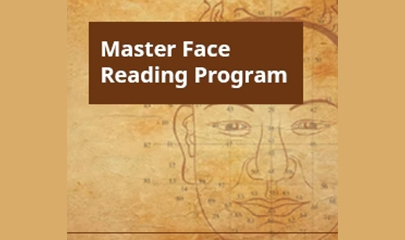
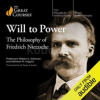
Reviews
There are no reviews yet.